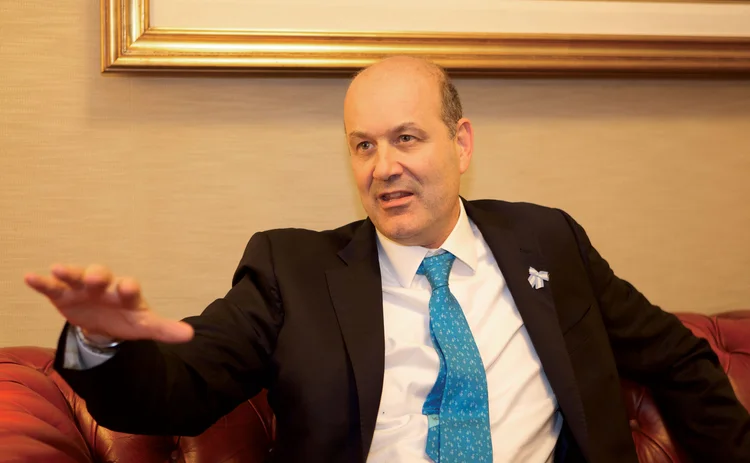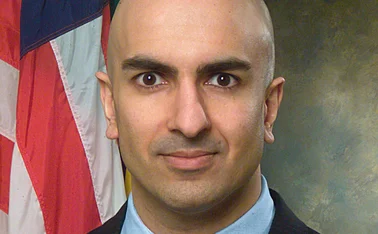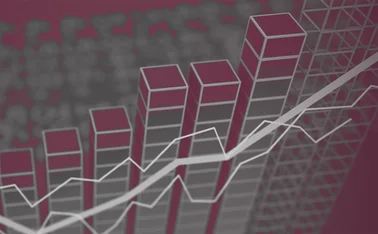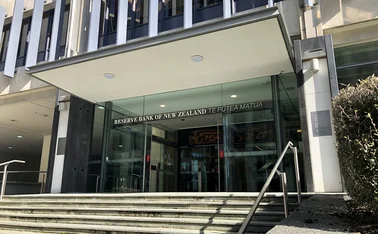
Time for Central Bank of Argentina independence
Monetary financing has fallen sharply, but must now end
The inflation record in Argentina is not a good one. Visiting the museum opposite the Central Bank of Argentina (BCRA) in Buenos Aires, one can see there have been frequent inflationary episodes. In total, 13 zeros could have been added to Argentinian banknotes in the past century – something the current staff at the central bank know all too well.
When the administration of president Mauricio Macri took power in December 2015, annual inflation was spiralling upwards, and the BCRA was a ‘captured’ institution, providing monetary financing to the government to the tune of 5% GDP a year by 2015. Since then, much has changed. Inflation has fallen to less than 30%, and monetary financing now stands at around 1% of GDP.
The disinflation is all the more remarkable given it has taken place at the same time as the exchange rate has moved from a ‘fixed rate’ to a ‘dirty float’, and utility prices – fixed under the previous administration – have risen a multiple of times. But inflation remains far too high. At around 26%, it is well above the central bank’s upwardly revised target of 15% for the year. And mistakes of the past two years must be learned from.
Damaged record
The revamped economics department at the BCRA has made two obvious mistakes in their inflation predictions during the past two years. The first resulted in cuts in rates between June 2016 to February 2017 (when rates stood at 38% with second half of 2016 inflation at 8%) that were too deep and too quick. The second error led to rates being cut by 150 basis points in January 2018.
BCRA governor Federico Sturzenegger, who must be credited with a remarkable transformation in the capacity and authority of the central bank during the past 30 months, takes responsibility for cutting rates too quickly. “With the benefit of hindsight, it would have been better not to have cut rates at the end of 2016 and the start of 2018,” he tells Central Banking in a wide-ranging interview.

Sturzenegger, however, consistently dismisses reports that the central bank was pressured by the government to soften its monetary policy stances on these occasions: “There were a lot of things said about pressures that have no reality in fact.”
That said, the central bank did bring forward its plans – which Sturzenegger says were already in the pipeline because of core inflation hitting 1.4% in December 2017 – to cut rates in January following the government’s decision to increase the BCRA’s inflation target for 2018 from a range of 8-12% to 15%.
Learning from meltdown
Despite the recent change in the central bank’s inflation target – which still looks like a challenge to hit for 2018 – Argentina generally appears to have placed too much of a burden on monetary policy versus fiscal policy in its overall policy stance. This was highlighted in the International Monetary Fund’s latest Article IV report, which indicated the Macri administration would consider more ‘frontloaded’ fiscal consolidation should events require such a move.
The 20% fall of the Argentine peso against the US dollar and concerns about Argentina’s external debt servicing capabilities during past month make such a shift almost inevitable. The sell-off in Argentina forced the central bank to raise rates to 40%, and the government took the politically dangerous move to seek out exceptional access financial support from the IMF – an institution reviled by segments of the Argentinian population.
But the administration and the central bank’s efforts, not to mention confidence-boosting bond purchases by Franklin Templeton Investments, have demonstrated the ability of the authorities to listen, understand and react to changing conditions, and have reassured market participants – at least for now.
The IMF facility is still being negotiated. But there is little doubt IMF money will be tied to a package of frontloaded fiscal reforms, likely greater than those put forward by IMF staff in December. Importantly, any deal should also include a facility – estimated to be around $6 billion by one IMF official – to terminate monetary financing of the government by the central bank.
Ending monetary ‘capture’
The current “baseline” plan to reduce monetary financing, agreed between the government and the central bank in December 2017, says Sturzenegger, was to reduce monetary financing from 1% of GDP to 0.5% of GDP next year, and then to follow a ‘seigniorage rule’. The aim was to stop the government collecting an ‘inflation tax’ by 2020. But this is now up for review.
“The timeframe is being discussed within the context of the IMF programme. And we’ll see if that is accelerated or not,” says Sturzenegger. “Ideally, you would want to cut it completely.”
He is correct. So the IMF should ensure this is the case as part of any assistance programme offered to Argentina.
Central bank law?
The Macri administration also needs to reconsider introducing a central bank law to guarantee the BCRA operational independence to pursue its monetary policy goal – something Macri proposed during the early days of his administration.
At the time, says Sturzenegger, he wanted the BCRA to earn its independence credentials before they were formally granted – to be de facto independent, rather than ineffectively de jure independent. “Argentinians are too keen to try to change the world by changing the law,” Sturzenegger says he told Macri. “There was a law that pegged the peso one-for-one to the US dollar, and its introduction meant people thought all the problems would be solved,” he added, in reference to a failed economic policy of the previous government.
Sturzenegger says he told Macri that once the central bank actually operated independently and had brought down inflation, it would then be appropriate to give de jure independence: “We want to show the Argentinian people that an independent central bank is worth having. We want to show this through its results.”
We want to show the Argentinian people that an independent central bank is worth having. We want to show this through its results
Federico Sturzenegger, Central Bank of Argentina
The BCRA governor points to the case of the Bank of England, which gained its inflation-fighting reputation under a Conservative government in the 1980s and 1990s, and subsequently secured legal independence under a later Labour government after it had established its reputation. But late UK prime minister Margaret Thatcher never had any intention of giving the Bank of England its independence (according to Otmar Issing). Moreover, the BCRA has already started to secure its reputation for independence among the population.
Strong legal protection for the central bank through the introduction of a central bank law, combined with modern communications, would reinforce this and also send a signal to international investors.
The IMF financing presents an opportunity for Argentina that should be grasped – to introduce a central bank independence law and to put an end to monetary financing in one fell swoop.
Even Sturzenegger seems to be warming to the idea: “At this point – and given the current debate – I would not be against more assertive and positive actions in favour of a more independent central bank moving forward. That would be a very positive step. But we have already come most of the way without a law.”
Only users who have a paid subscription or are part of a corporate subscription are able to print or copy content.
To access these options, along with all other subscription benefits, please contact info@centralbanking.com or view our subscription options here: http://subscriptions.centralbanking.com/subscribe
You are currently unable to print this content. Please contact info@centralbanking.com to find out more.
You are currently unable to copy this content. Please contact info@centralbanking.com to find out more.
Copyright Infopro Digital Limited. All rights reserved.
As outlined in our terms and conditions, https://www.infopro-digital.com/terms-and-conditions/subscriptions/ (point 2.4), printing is limited to a single copy.
If you would like to purchase additional rights please email info@centralbanking.com
Copyright Infopro Digital Limited. All rights reserved.
You may share this content using our article tools. As outlined in our terms and conditions, https://www.infopro-digital.com/terms-and-conditions/subscriptions/ (clause 2.4), an Authorised User may only make one copy of the materials for their own personal use. You must also comply with the restrictions in clause 2.5.
If you would like to purchase additional rights please email info@centralbanking.com








